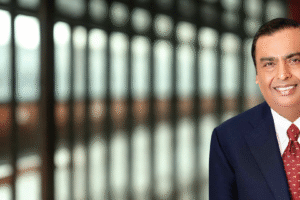India’s Gross Domestic Product (GDP) is predicted to increase by 6.8 per cent in the upcoming fiscal year 2023-24, which is lower than the previously projected growth rate of 7 per cent for the current financial year 2022-23, according to analytics company CRISIL. These estimates are 40 basis points lower than the Reserve Bank of India’s prediction of 6.4 per cent, and 100 basis points lower than CRISIL’s own estimate of 7 per cent for FY23.
On Thursday, CRISIL Ltd, a credit rating agency, described the worldwide situation as more negative and predicted that India’s GDP growth for FY24 would be 6 per cent, which is lower than the 7 per cent estimate made by the National Statistical Organisation (NSO) for FY23. According to CRISIL, a combination of intricate geo-political circumstances, persistently high inflation, and significant interest rate increases aimed at addressing it, have contributed to a more dismal global situation.
According to the credit rating agency, the possibility of inflation increasing is more likely due to the current heat wave and the prediction from the World Meteorological Organization that an El Nino warming event is expected to occur within the next few months. “The primary obstacle that the Indian economy will face in the upcoming fiscal year is maintaining growth despite the global slowdown,” CRISIL said about the GDP growth in FY24.
“The rising global strains path has been changed – from the Covid-19 pandemic to ongoing conflicts between Russia and Ukraine. The world economic scenario has forced to increase in interest rates for important central banks to tackle the wave of inflation. In advanced countries, policy rates are currently at their highest level in ten years. The decrease in global growth will impede India’s exports. Moreover, as the effects of the increased policy rates spread throughout the economy, there is a possibility that demand will weaken due to tighter domestic financial conditions,” the report said.
“The Indian GDP is projected to increase by 6.8 per cent annually over the next five financial years, which will be primarily driven by enhancement in capital and productivity,” stated by Amish Mehta, CEO and managing director at CRISIL. It is expected that this percentage will increase to 15 per cent by the fiscal year 2027, as per the report. The report said a favourable harvest during the rabi season would contribute to reducing food inflation, while the deceleration of the economy would have a moderating effect on core inflation.




